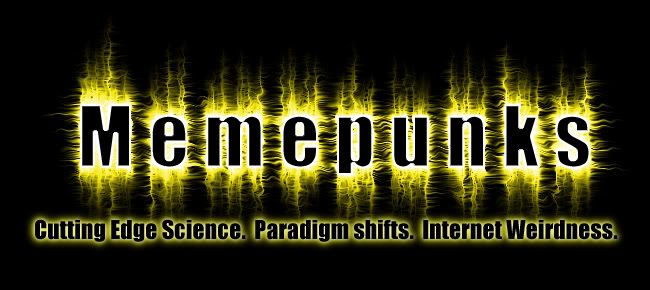March of the Penguins
 The Red Hat Summit concluded today in Nashville. It was a gathering of open source industry leaders, experts and visionaries. Speeches and conferences lasted three days and covered a range of poignant topics including; "Open source, Freedom, Patents, Public policy, and Ground-breaking technology." There were a number of big names present, including the One Laptop Per Child Chairman, Professor Nicholas Negroponte. Also in attendance was author, blogger, DRM expert, EFF fellow and my personal hero Cory Doctorow. And of course the chairman, CEO and President of Red Hat Matthew Szulik was on hand to provide opening and closing keynotes for the summit. From start to finish, this year's Red Hat Summit showed that not only is Linux coming into it's own, but that Open Source Software is both an instrument for societal change and a pathway to a brighter future.
The Red Hat Summit concluded today in Nashville. It was a gathering of open source industry leaders, experts and visionaries. Speeches and conferences lasted three days and covered a range of poignant topics including; "Open source, Freedom, Patents, Public policy, and Ground-breaking technology." There were a number of big names present, including the One Laptop Per Child Chairman, Professor Nicholas Negroponte. Also in attendance was author, blogger, DRM expert, EFF fellow and my personal hero Cory Doctorow. And of course the chairman, CEO and President of Red Hat Matthew Szulik was on hand to provide opening and closing keynotes for the summit. From start to finish, this year's Red Hat Summit showed that not only is Linux coming into it's own, but that Open Source Software is both an instrument for societal change and a pathway to a brighter future.Have a look at the video of the opening keynote speech by Matthew Szulik. It begins with Szulik addressing what I refer to as the four noble truths of Open Source. Freedom, Courage, Accountability, and Commitment. He also speaks to the changes that have happened over the last ten years of the open source movement. Such as how ISO has approved the Open Document Format as an international standard, beating out Microsoft's proprietary format. He notes that ten years ago there was no Creative Commons, no built in infrastructure to replenish our informational and creative assets. Szulik stressed transparency, collaboration, and competition through continued innovation rather than industry lock in and control. Echo that!
After his initial introduction, in a tip of the red hat to collaboration, his keynote is actually taken over by other presenters. There are four separate segments that follow Szulik. The first two are rather technical, and probably wont strike a chord with those not already entrenched with the open source development community. But about 31 minutes into the keynote, Havoc Pennington introduces Mugshot. This is the OSS community's answer to social networking sites like MySpace. At the moment Mugshot in invitation only, but you can sign up to get on the waiting list and try it for yourself. This looks to be the first social networking site that I may actually use actively. Take THAT Rupert Murdoch! Seriously though, it remains to be seen whether something like Mugshot will be the MySpace killer.
After Havoc, about 39 minutes into the keynote video we see Christopher Blizzard of the One Laptop Per Child program, which we blogged about a while back here on Memepunks. He speaks with candor about the goals and aspirations of the OLPC and even debuts the first functional prototype of the $100 machine in question. The OLPC initiative was definitely the star of the Red Hat Summit. And although you cant see the actual prototype in the keynote, you can check out the video of Chistopher showing the machine off to a select few. It's orange, it has bunny ears, bears more than a passing resemblance to my old Speak and Spell, and I really really want one (more photos available here). Professor Negroponte delivered a keynote of his own on the last day of the conference where he noted that the OLPC project would bring Linux to a large percentage of desktops world wide. And he gleefully said that if both Intel and Microsoft are annoyed with him, then he must be doing something right. Long story short, the hundred dollar machine is real, the OLPC is on schedule and it's going to shake up the world.
I haven't been able to find video or transcripts of Professor Negroponte's keynote, nor that of Cory Doctorow. If anyone has them, let me know and I'll post a link up here. And although the Red Hat Summit has ended, Open Source is just getting started. Their ideas, values, tools and business models are much more suited to the coming decades than those of the closed source establishment. I applaud my Linux wielding brothers and sisters for a fine showing this year. I'm looking forward to even more great new things to come out of Open Source. Not just in software, but everywhere in our lives. I leave you with the closing words of Matthew Szulik.
"I don't think that this is limited. I think that this is what you would expect, and what I hope you would expect out of the modern enterprise. As you would start to think less about the thing called Brand, and more and more about "Reputation Capital". Because at the end of the day, it is absolutely essential for open source software to continue be successful, that it carries a reputation with it, as driving social change and improving the characteristics and the quality of life for the societies and the communities that we live in. And that we do this in an entirely transparent and collaborative way."



0 Comments:
Post a Comment
<< Home